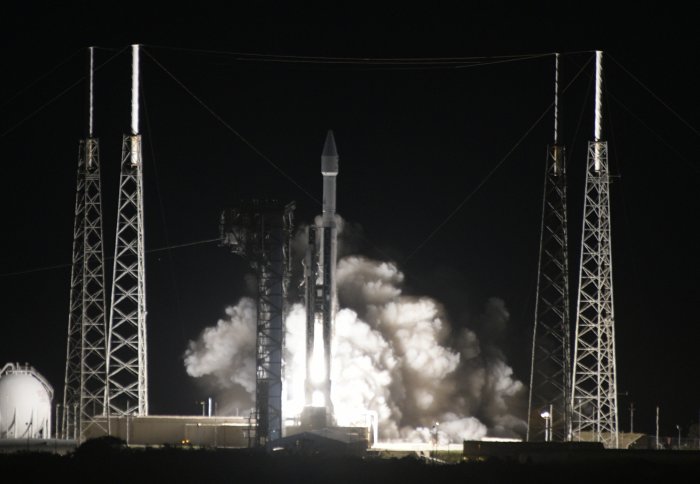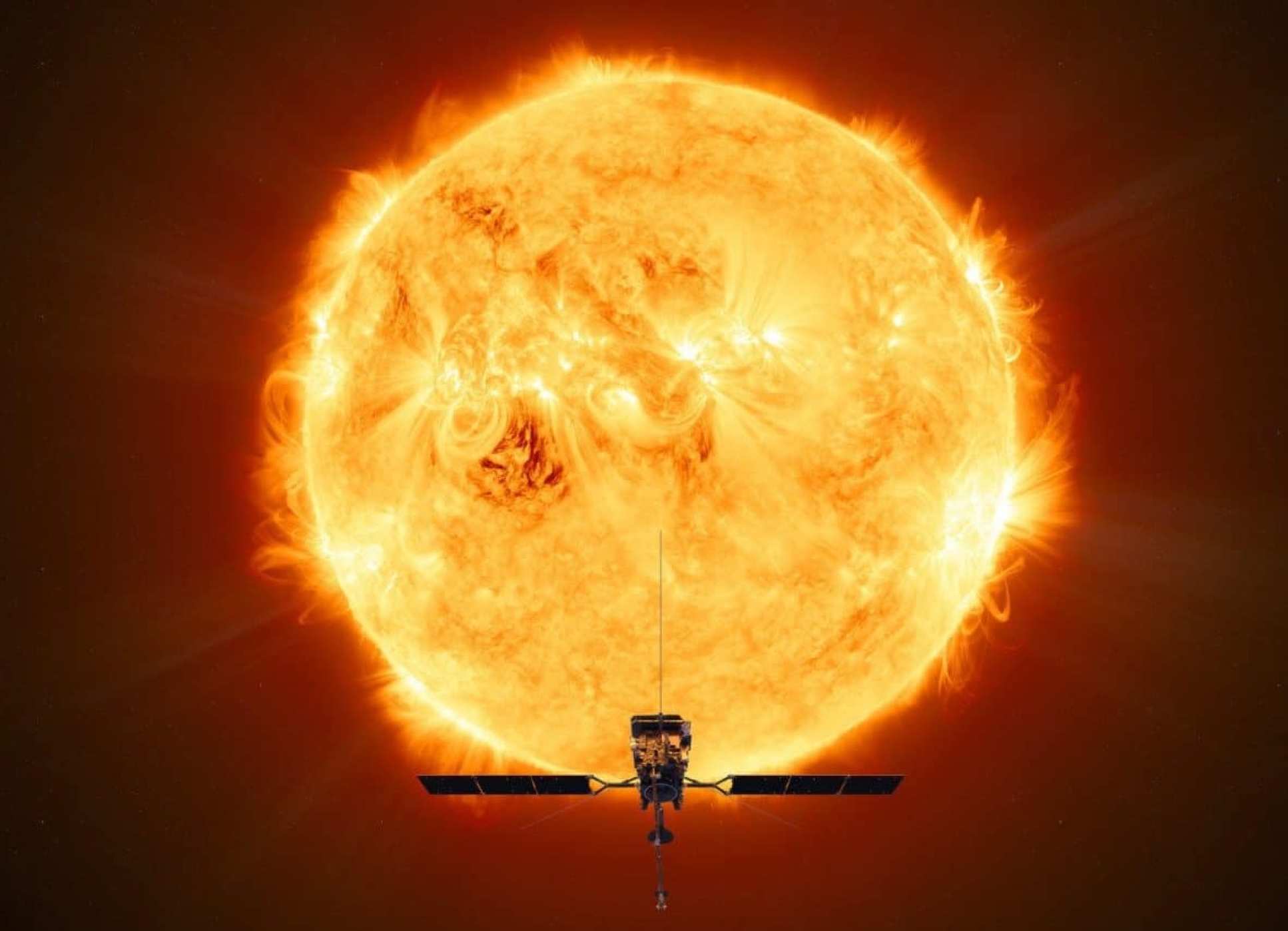Sun explorer spacecraft successfully launches with Imperial kit on board

The UK-built Solar Orbiter spacecraft lifted off from Cape Canaveral in Florida and is now on its way to the Sun.
Solar Orbiter carries 10 state-of-the-art instruments, including a magnetometer built by a team from Imperial’s Department of Physics.
To find out more about the mission and Imperial’s contribution, take a look at our interactive feature.
'A beautiful launch'
Instrument Manager for the magnetometer, Helen O'Brien, said: "We just witnessed a beautiful launch. It was a warm night in Florida, with few clouds, providing a fabulous view. The rocket lifted off smoothly, and from my viewing point five miles from the pad, silently, as the roar of the engines took 25 seconds to reach us. It headed off towards the full moon.
"It was a really emotional moment: I have been working on this mission for 12 years. And now the real fun can begin. I am looking forward to switching on our instrument and can't wait to measure those magnetic fields!"

Principal Investigator for the magnetometer, Professor Tim Horbury, said: "The launch was everything I hoped it would be, and more. Everything seems to have gone perfectly and in a testament to the engineering team here at Imperial, we managed to get the first spacecraft data back to us, and decode it, within just a few minutes of it releasing from the rocket's second stage. We're already measuring the temperatures of our sensors and seeing them gently cool in space.
"Now the hard work begins! In the next few days we'll get the first magnetic field measurements from our instrument and we can start assessing its quality. It's going to be busy, but great fun."
A leading role in space
The mission will take the most detailed images ever of the Sun and provide crucial information about how our star’s volatile activity affects its atmosphere. This knowledge will help improve predictions of space weather events, which can disrupt and damage satellites and infrastructure on Earth.
This has never been more important as the UK economy is increasingly reliant on space, with satellite services such as communications, navigation and Earth observation supporting wider industrial activities worth £300 billion.
Business Secretary Andrea Leadsom said: “Solar storms could cause major disruptions to technologies including our energy grid, mobile phone signal and navigations systems.
“This new mission demonstrates the UK’s leading role in the global space industry, while supporting our economy, creating jobs and helping establish the UK as a global science superpower.”
Solar Orbiter will allow scientists to study our star in much more detail than previously possible and to observe specific features for longer periods than can be achieved by any spacecraft circling the Earth. The spacecraft’s orbit will also give unprecedented views towards the Sun’s poles.
Chris Lee, Chief Scientist at the UK Space Agency, said: “I am incredibly excited by Solar Orbiter. It is the most important UK space science mission for a generation, both in terms of our leading industrial role on the satellite itself and our key academic roles on the science payload.
"It also contributes massively to the development of operational space weather forecasting as championed by the UK Met Office and so will have real impact for the UK public at large. Solar Orbiter truly is a 'big beast' for our UK space community.”
-
Images credit ESA - S. Corvaja
Article supporters
Article text (excluding photos or graphics) © Imperial College London.
Photos and graphics subject to third party copyright used with permission or © Imperial College London.
Reporter
Hayley Dunning
Communications Division